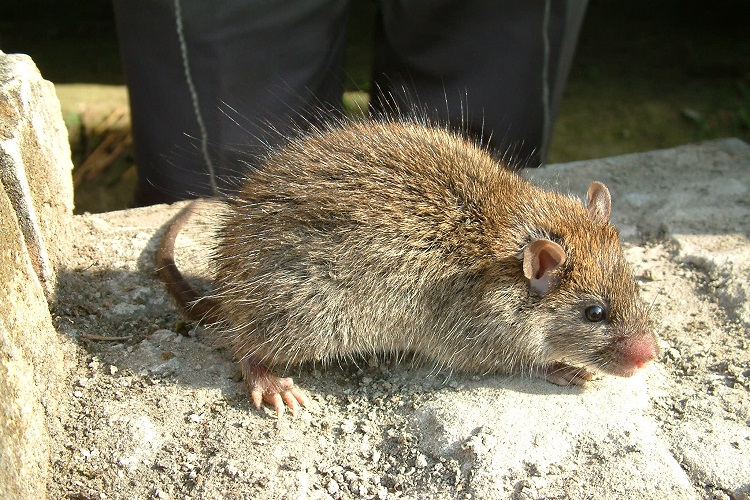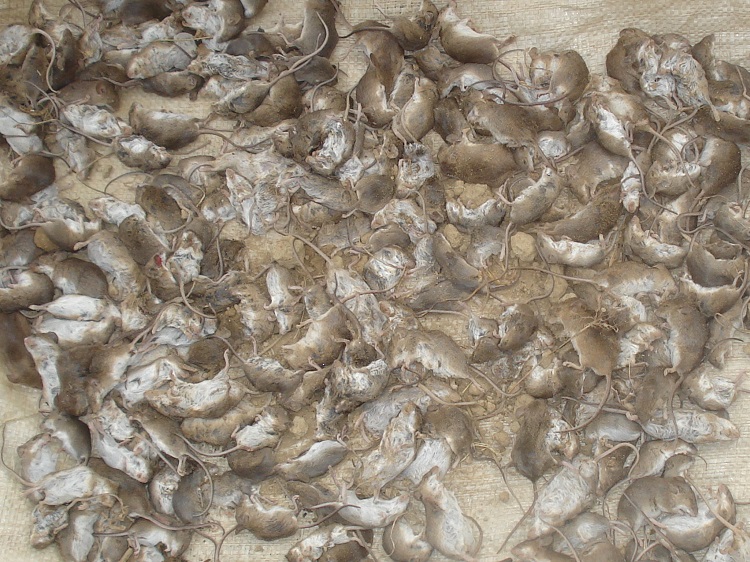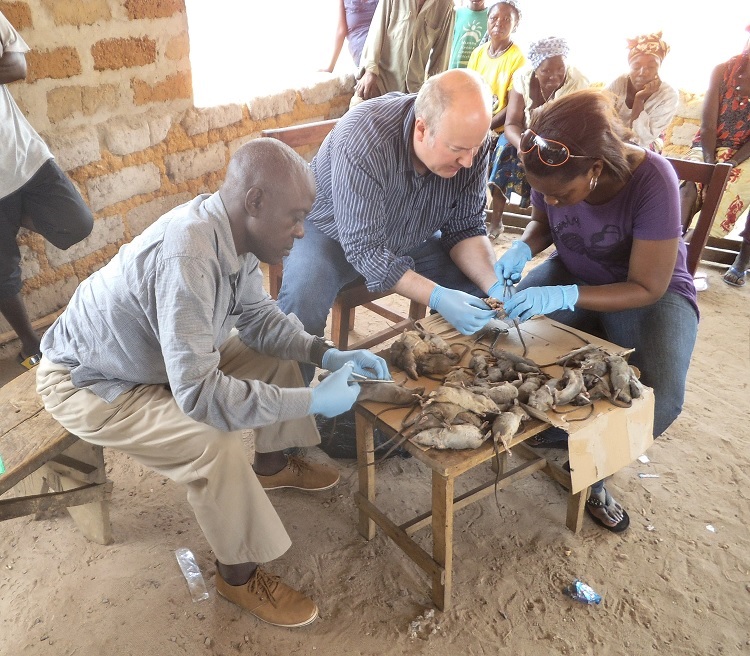
Rodents, particularly rats, elicit a strong reaction in most people – from fear, to loathing, to disgust – and with good reason, for we know they can transmit diseases, destroy food crops and damage infrastructure. But what do we do when rodents get out of control? NRI’s Professor Steve Belmain will discuss rodent reproduction and control at his Inaugural Professorial Lecture entitled “Sex, Breeding and Population Dynamics: When Rodents Get out of Control” taking place on the 8th June, 2016 at the University of Greenwich’s Medway Campus.
“Most rodent management strategies involve killing them with some kind of poison,” says Professor Belmain, “and indeed, our options are rather limited with virtually no research having been undertaken to develop new rodent management methods over the last 50+ years”. He explains that we must control rats if we want to stop them damaging our crops and transmitting diseases. Using warfarin-based poisons developed in the 1950s is often the only solution considered to be effective. With our almost exclusive reliance on anti-coagulant poisons, the world has seen mounting problems with rodents developing physiological and behavioural resistance to these poisons, increasing problems with non-target poisoning and environmental contamination and creating demand for more humane methods of rodent control.
 In developing countries of the South, rodent pest problems are truly monumental, with rodents attacking virtually any crop grown, contaminating stored food with their urine and faeces, and transmitting many life-threatening and debilitating diseases to people and our livestock. Communicable diseases such as bubonic plague and Lassa fever continue to infect thousands of people, particularly in Africa where rodent-borne diseases are often not recognised, diagnosed or treated, with many thousands of poor people dying from rodent-borne diseases each year.
In developing countries of the South, rodent pest problems are truly monumental, with rodents attacking virtually any crop grown, contaminating stored food with their urine and faeces, and transmitting many life-threatening and debilitating diseases to people and our livestock. Communicable diseases such as bubonic plague and Lassa fever continue to infect thousands of people, particularly in Africa where rodent-borne diseases are often not recognised, diagnosed or treated, with many thousands of poor people dying from rodent-borne diseases each year.
So why isn’t more being done to keep rodents under control? Are rodent pest problems largely a problem of poverty, where little money can be made from developing new rodent management methods? Is there limited awareness about the scale of the rat problems affecting the poor? Or is it that we simply don’t know what else we can do about the problems rodents cause?
 Professor Belmain’s inaugural lecture will answer these questions and more, arguing that improving rodent management in the developing world could be one of the most important interventions of the 21st century across the Tropics to reduce poverty and improve people’s livelihoods. New research on ecologically-based rodent management will be presented that shows there are sustainable methods of controlling rodents without the use of poisons. Prof Belmain will present research he is leading that aims to provide insights on the use of biological control and the development of fertility control for regulating rodent pest populations.
Professor Belmain’s inaugural lecture will answer these questions and more, arguing that improving rodent management in the developing world could be one of the most important interventions of the 21st century across the Tropics to reduce poverty and improve people’s livelihoods. New research on ecologically-based rodent management will be presented that shows there are sustainable methods of controlling rodents without the use of poisons. Prof Belmain will present research he is leading that aims to provide insights on the use of biological control and the development of fertility control for regulating rodent pest populations.
The lecture will be followed by refreshments, during which time Professor Belmain will be available to discuss his work.
To book a free place or for more information please contact: Heather McAvoy-Marshall, tel: 01634 883911 or email:

